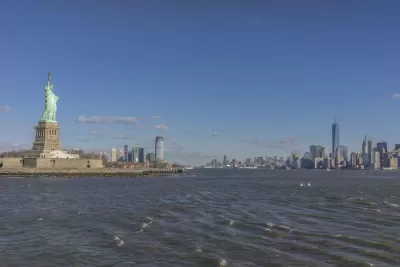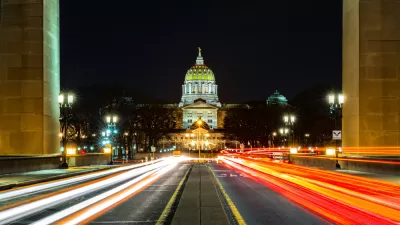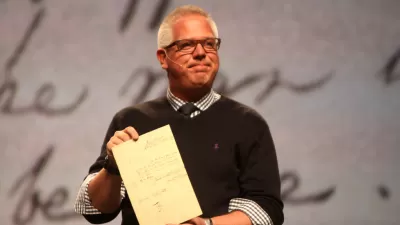A contentious debate broke out this week, after a pundit proposed breaking up the consolidation of economic and political power of the country's liberal cities.

New York Times pundit Ross Douthat went and did something controversial over the weekend and provided a dissenting take on the narrative of urban areas as the economic powerhouses and diversity successes of the United States.
So has the heyday of these meritocratic agglomerations actually made America greater? I think not. In the age of the liberal city — dating, one might argue, to the urban recovery of the 1990s — economic growth has been slack, political dysfunction worse, and technological progress slow outside the online sector.
After stating his premise, Douthat goes on to propose an idea he admits is "Implausible, perhaps even ridiculous":
We should treat liberal cities the way liberals treat corporate monopolies — not as growth-enhancing assets, but as trusts that concentrate wealth and power and conspire against the public good. And instead of trying to make them a little more egalitarian with looser zoning rules and more affordable housing, we should make like Teddy Roosevelt and try to break them up.
Douthat provides more detail on what that deconsolidation would like that, and sparked a lot of social media discussion in the process.
One response to Douthat's proposal is especially worth noting, that of City Observatory's Joe Cortright, who writes that Douthat's proposal "one of the most spectacularly wrong-headed policy prescriptions for economic development that has ever been offered."
According to Cortright's well-evidenced response, breaking up cities would not spread the wealth, but "actually destroy value and make the nation worse off."
FULL STORY: Break Up the Liberal City

Planetizen Federal Action Tracker
A weekly monitor of how Trump’s orders and actions are impacting planners and planning in America.

Maui's Vacation Rental Debate Turns Ugly
Verbal attacks, misinformation campaigns and fistfights plague a high-stakes debate to convert thousands of vacation rentals into long-term housing.

San Francisco Suspends Traffic Calming Amidst Record Deaths
Citing “a challenging fiscal landscape,” the city will cease the program on the heels of 42 traffic deaths, including 24 pedestrians.

Amtrak Rolls Out New Orleans to Alabama “Mardi Gras” Train
The new service will operate morning and evening departures between Mobile and New Orleans.

The Subversive Car-Free Guide to Trump's Great American Road Trip
Car-free ways to access Chicagoland’s best tourist attractions.

San Antonio and Austin are Fusing Into one Massive Megaregion
The region spanning the two central Texas cities is growing fast, posing challenges for local infrastructure and water supplies.
Urban Design for Planners 1: Software Tools
This six-course series explores essential urban design concepts using open source software and equips planners with the tools they need to participate fully in the urban design process.
Planning for Universal Design
Learn the tools for implementing Universal Design in planning regulations.
Heyer Gruel & Associates PA
JM Goldson LLC
Custer County Colorado
City of Camden Redevelopment Agency
City of Astoria
Transportation Research & Education Center (TREC) at Portland State University
Jefferson Parish Government
Camden Redevelopment Agency
City of Claremont





























